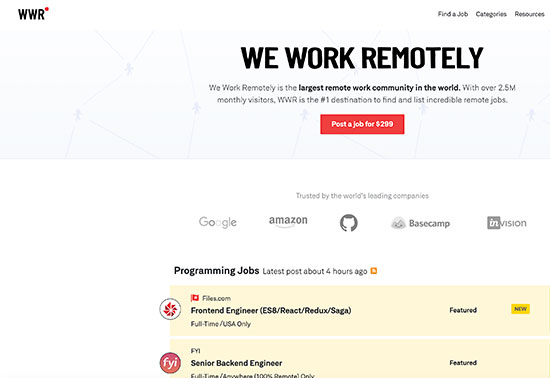

Never know who you're gonna meet," Kapur said. "I get to see other founders, get to see other people who are working. Right now, he does his work from a WeWork space inside a downtown San Francisco skyscraper. WeWork is also hitching its appeal on people like Sameer Kapur, a Perdue University student who has launched a startup aimed at helping students learn to code. "WeWork is positioning itself as a company that is capitalizing on the changing world of office space, but they really don't know and neither do we," Brown said. On the other hand, Brown notes, if more people return to the office, WeWork might struggle to maintain its hundreds of leases around the world. "The demand for the WeWorks of the world, the co-working space, the flexible office leasing market, is huge," she said. In the past two months alone, it has left 17 buildings and renegotiated leases on more than 50 others, according to a company spokesperson.īut Denham says the company, which offers space literally by the hour, is well-positioned to capitalize on the changing nature of office work. "It's one of the most uncertain times for the office market probably since the '70s, when so many corporations left major cities," she said. That has led companies to cancel some office leases and downsize others, said Barbara Denham, an economist at Oxford Economics. Some are now making those arrangements permanent, at least to some degree. Many employers sent workers home during the pandemic. "My focus is to right this ship." WeWork's second act: Admitting it's a real-estate company "It's noise in the background as far as I'm concerned," he replied. It's making a big bet on the rise of remote work and planning to go public this year, after the first attempt in 2019 under Neumann ended in a debacle. After ditching Neumann, the company hired a seasoned real estate executive as CEO and scaled back operations. Now, WeWork is in the midst of a second act. "He created the country's most valuable startup, but it was essentially just a mirage," Brown said. firms like Goldman Sachs, said was worth $47 billion. What emerged out of the haze? A company that investors, from Japanese juggernaut SoftBank to major U.S. "He had a cigar-bar-type vent installed in his office to suck out the marijuana smoke," Brown said in an interview. Well before noon, Neumann was known to offer potential investors shots of tequila from a bottle he kept behind his desk. He also embraced a "party-boy life style," said Eliot Brown, whose new book with co-author Maureen Farrell, The Cult of We: WeWork and the Great Start-Up Delusion, was published on Tuesday. Say WeWork and one person comes to mind: Adam Neumann, the lanky founder and former CEO with flowing black hair and a rock-star persona who would carry on about the "energy" of the company's communal work spaces. WeWork, the embattled communal office-space company, is expected to try to go public this year, after the company's first attempt was scuttled in 2019.


 0 kommentar(er)
0 kommentar(er)
